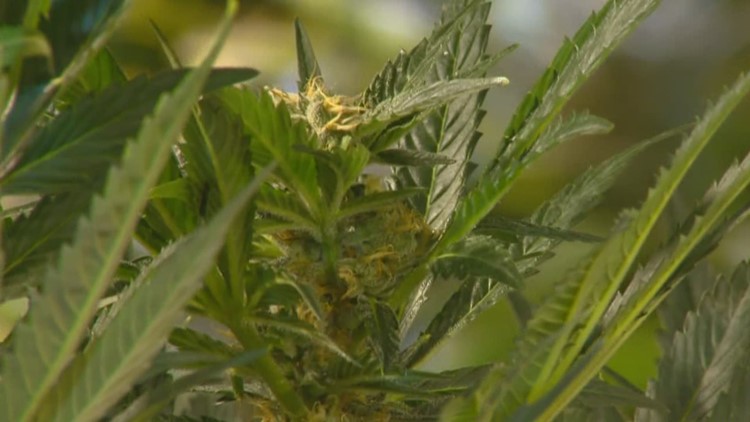DENVER — It's legal to grow marijuana within the city of Denver, but you can't grow those plants anywhere you want.
With the growing season right around the corner, the Denver Police Department launched a new campaign to educate homeowners about what they can and can't do.
Here are the basic rules:
- Six plants per person for a maximum of 12 plants
- Must be at least 21-years-old to grow recreational marijuana
- Must be at least 18-years-old and have a registry card to grow medical marijuana
- Must be grown in a locked, enclosed space such as a greenhouse
- 50% flowering at any time
That mean's they can not be planted in your garden next to your other vegetables.
"You have to grow it in a secure locked place," said DPD Commander James Henning. "That's not just putting a lock on the fence in the backyard. It has to be a greenhouse. It has to be a solid structure that no one could get into unless they have access through that lock."
Officers have been cracking down on home grows in recent years after a number of violent crimes were associated with them, particularly between 2014 to 2016.
"We had violence surrounding these home grows with people actually defending their home grows," Henning said. "We actually had a couple of homicides in 2016 involving home grows."
As a result, the department's marijuana team put outdoor grows at the top of their priority list. During 2017, there were 260 marijuana grow investigations. That number was cut in half for 2018, Henning said.
"More notably than that is we had zero incident of violence surrounding these grows," Henning said. "So we went from assaults and homicides and robberies at these home grows down to zero."
All the investigations are complaint-based and as officers contacted growers, they learned many just didn't understand the law.
"That's why we think education is so important," said Ashley Kilroy, director of the Office of Marijuana Policy. "We don't want to see more people saddled with marijuana convictions. We'd rather them know the law and not get charged. We know we've got a lot of citizens who have been saddled with low-level marijuana convictions that have really negatively impacted their lives."
SUGGESTED VIDEOS | Local stories from 9NEWS



